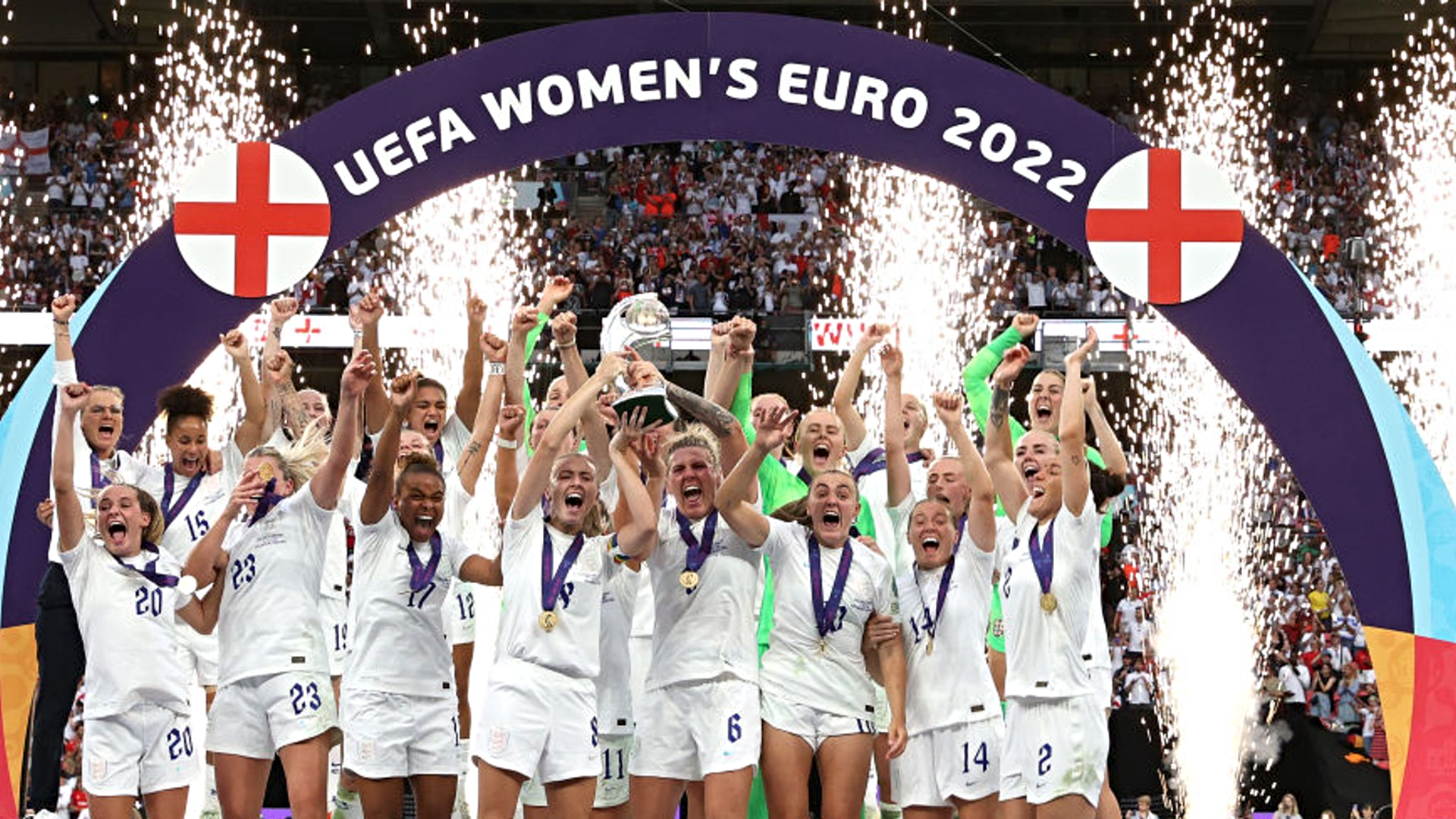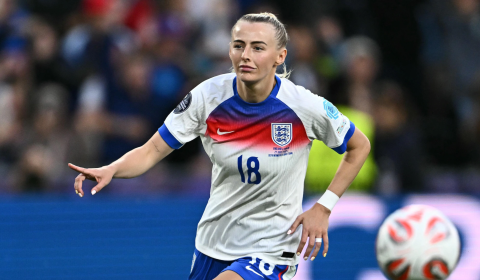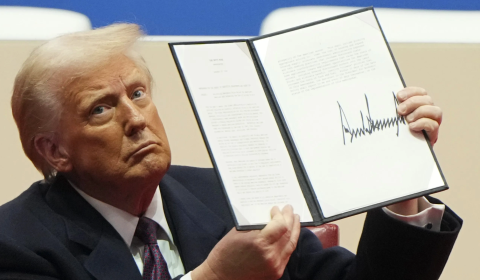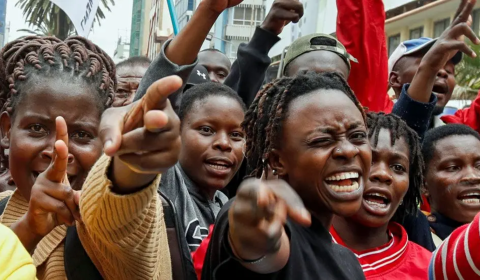Sarina Wiegman’s Lionesses have captured the hearts and minds of the country and the future of women’s football will be all the better for it.
The celebrations are rightly still ongoing, but we can’t help but look to the future.
If you’ve been living under a rock this weekend, Sarina Wiegman’s brilliant Lionesses were crowned the champions of Europe yesterday evening, and against old foes Germany to boot.
The managerial mastermind, who previously helmed the Netherland’s Euro winning outfit of 2017, led her youthful England side to their first historic triumph since the tournament began in 1984.
Right from the offing, there was no shortage of special moments. Georgia Stanway’s stunning longshot to sink Spain in extra time, Alessia Russo’s back heel nutmeg to cap a rout over first-ranked Sweden, and Ella Toone’s ice-cool chip on the biggest stage of all, are a few of many that will last long in the memory of footie fans for decades.
https://youtu.be/qULqiwd2STs
56 years since any senior England team last won a trophy, the significance of what has just been achieved is still dawning on many of us – and oh how those jewels are gleaming!
After the initial excitement of seeing captain Leah Williamson lift the trophy, and one or two bevvies to celebrate football finally ‘coming home,’ our minds have now shifted from a tactical stance to a reflective one.
Close to 24 hours on, let’s now rejoice at the thought of what this momentous win could mean for the future of women’s football in the UK and beyond.
How far we’ve come
Though most of us weren’t around to witness it, the Lionesses did actually make the final of the very first tournament in 1984. In terms of spectacle and infrastructure, however, there are no comparisons to be made.
While the formula for the men’s game was relatively close to how it is today, the women’s international team was largely comprised of amateur players who still had day jobs. With little to no funding, the idea of a squad going into camp for a month to train, eat, and bond just wasn’t realistic.
In terms of the actual final itself, there’s very limited video footage and photographs of the event at all. Despite the country being on the cusp of greatness, sadly, people just hadn’t bought into the notion of women in football.
Ask your parents about the 1986 World Cup and they’ll talk all about the infamous Maradona handball which grabbed headlines globally, but mention the women’s Euro final 24 months prior and they’ll likely shrug.
Skip 38 years to the present day, and yesterday’s Wembley final had the highest attendance of any European Championship match at over 87,000 – that’s men’s or women’s. To top it off, within the first few games of the group stages records were broken with 250,000 supporters showing up.
Besides that, we’ve had constant media coverage, behind the scenes footage of the players, both professional male and female pundits have analysed the games, and pubs and landmarks across the country have been packed out with cheering fans. The buzz for the women’s game is absolutely huge and it’s about time.
With public interest massively on the rise, commercial opportunities have followed too. Barclays had already credentialed the Women’s Super League with its massive cash injection and TV rights – which is also the case with the men’s Premier League – but many others are now coming to the table at club level.
If you tuned in yesterday, you’ll no doubt have seen the Volkswagen advertising hoardings surrounding the pitch which spread the progressive message: Women play football #NotWomensFootball. That is, in essence, a perfect summation of how the tournament was treated.
WOW!
pic.twitter.com/jt4me1O9wi
— Lionesses (@Lionesses) August 1, 2022




















